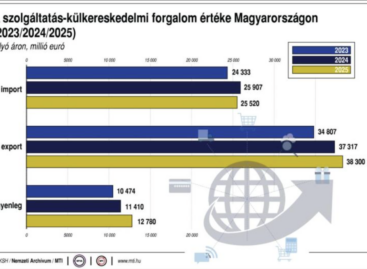Fidelity: Eyes of Asia on Japan and India
China’s future development is the biggest uncertainty factor in the region, but it is far from the only economy that will move Asian markets in the coming year. Japanese stocks may continue to outperform as the economy enters mild inflation after decades of stagnant growth and falling prices. It is no surprise that India is likely to become one of the fastest growing economies in the world in the coming years. With an ever-expanding working-age population, the country will produce and consume more goods and services, and Fidelity analysts also expect significant technological innovation.

In Japan, consumption is booming as a spillover effect of wage increases, which may cause further price increases. The mood of households is starting to shift from saving to spending, and this will have wide-ranging and lasting effects. At the same time, Japanese corporate governance reforms are releasing additional stock market values. Companies place more emphasis on dividend payments and share buybacks. The shareholder return profile of the Japanese market may improve faster than that of most other developed markets. With policymakers increasingly confident that the country’s mild inflation has reached sustainable levels, it is only a matter of time before the Bank of Japan further loosens its already ultra-loose monetary policy and abandons its yield curve control policy altogether. This monetary normalization will help attract investors to the local bond market.
Related news
Eurozone economic growth accelerated in February
🎧 Hallgasd a cikket: Lejátszás Szünet Folytatás Leállítás Nyelv: Auto…
Read more >KSH: The foreign trade surplus in services was 3.1 billion euros in the fourth quarter of last year
🎧 Hallgasd a cikket: Lejátszás Szünet Folytatás Leállítás Nyelv: Auto…
Read more >How does the forint exchange rate affect consumer prices?
🎧 Hallgasd a cikket: Lejátszás Szünet Folytatás Leállítás Nyelv: Auto…
Read more >Related news
Shape the future, in other words: build a brand!
🎧 Hallgasd a cikket: Lejátszás Szünet Folytatás Leállítás Nyelv: Auto…
Read more >MBH Analysis Center: The Hungarian economy may accelerate again in 2026, but the Iranian war carries serious risks
🎧 Hallgasd a cikket: Lejátszás Szünet Folytatás Leállítás Nyelv: Auto…
Read more >SPAR is preparing for an Easter rush: it is filling its stores with 570 tons of smoked meat products
🎧 Hallgasd a cikket: Lejátszás Szünet Folytatás Leállítás Nyelv: Auto…
Read more >








